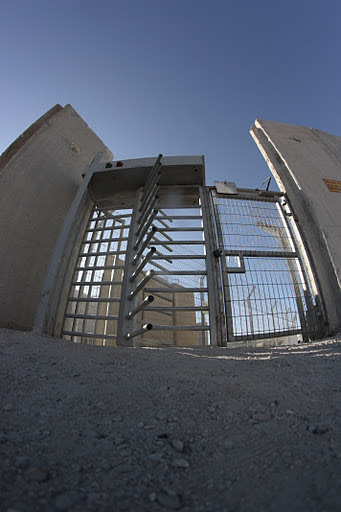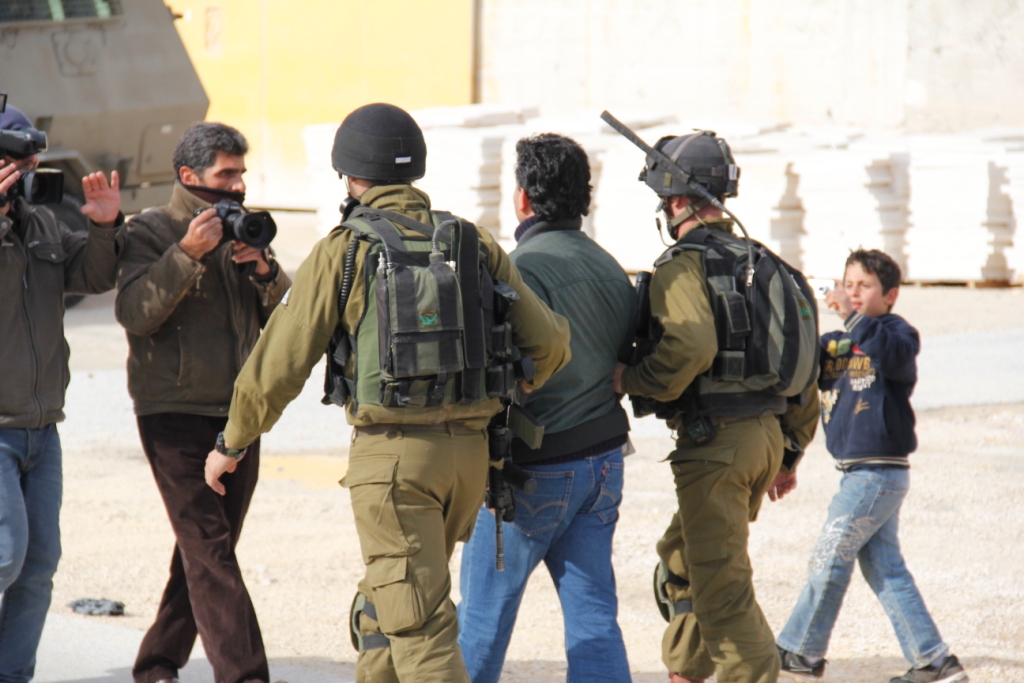Tag: Freedom of Access
-
Shu’fat: Forced to pay taxes from behind a checkpoint and wall
by Jenna Bereld and Samar 19 December 2011 | International Solidarity Movement, West Bank On December 18, 2011 residents of Shu’fat and activists protested against the separation wall in front of the new checkpoint. A certain loss of demonstrators was noted, since thirty-five organizers were arrested yesterday by Israeli policemen in their homes in the…
-
Al Ma’asara refuses the road to illegal settlement activity
10 December 2011 | International Solidarity Movement, West Bank This weeks’ demonstration in the village of Al-Maasara was attended by approximately forty peaceful protesters with twenty Palestinians and twenty internationals. As always during the protests in Al Ma’asara the protesters were confronted by a line of Israeli soldiers who refused to allow the Palestinians cross an…
-
Military teargases Kufr Qaddoum following nightly raids and arrests
by Alistair George 9 December 2011 | International Solidarity Movement, West Bank The Israeli military fired tear gas canisters directly at demonstrators in Kufr Qaddoum today in an aggressive response to the weekly protest against the closure of the main road linking the village with Nablus. Many people suffered from severe gas inhalation. After midday…



